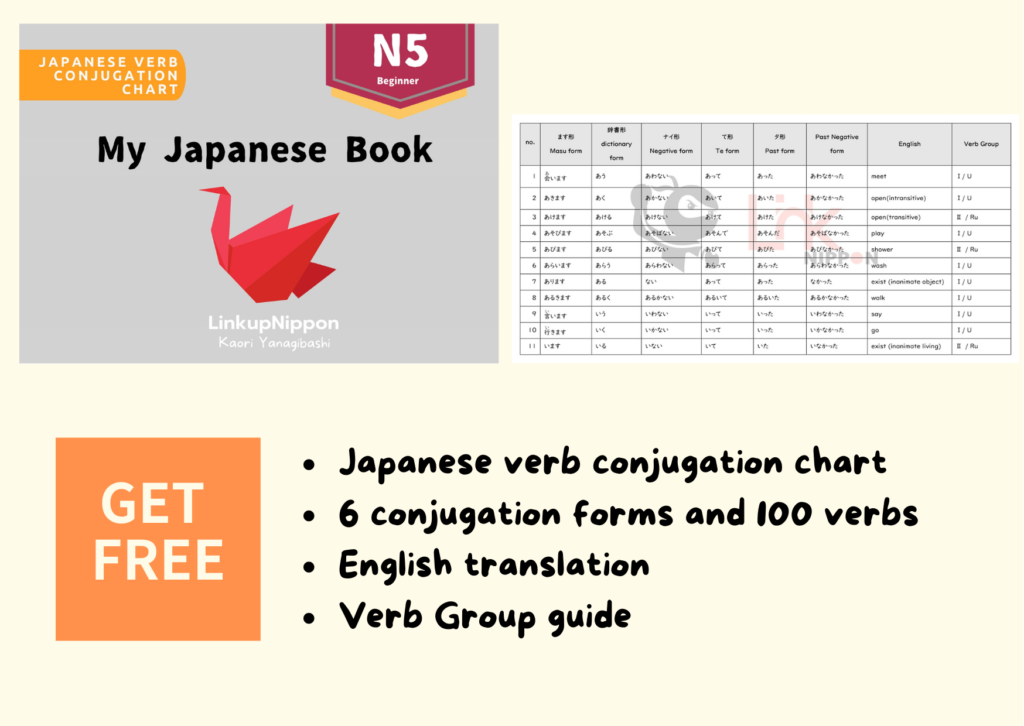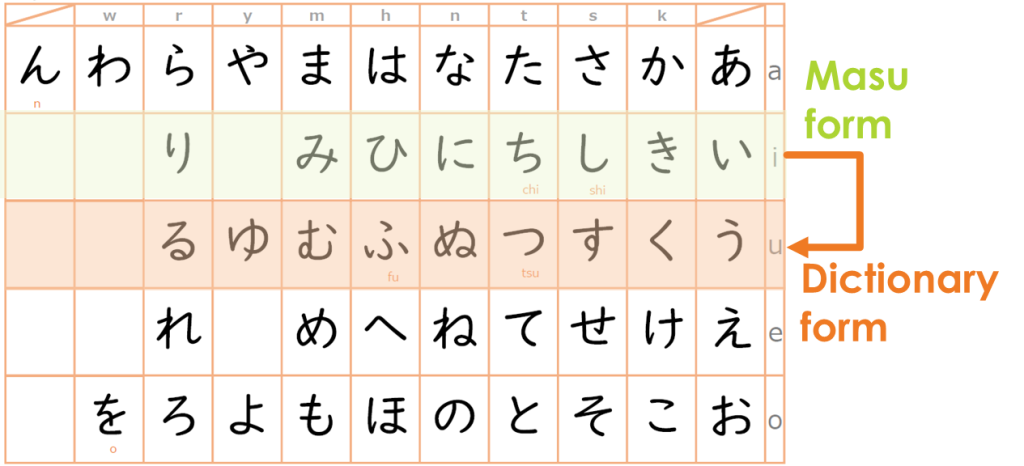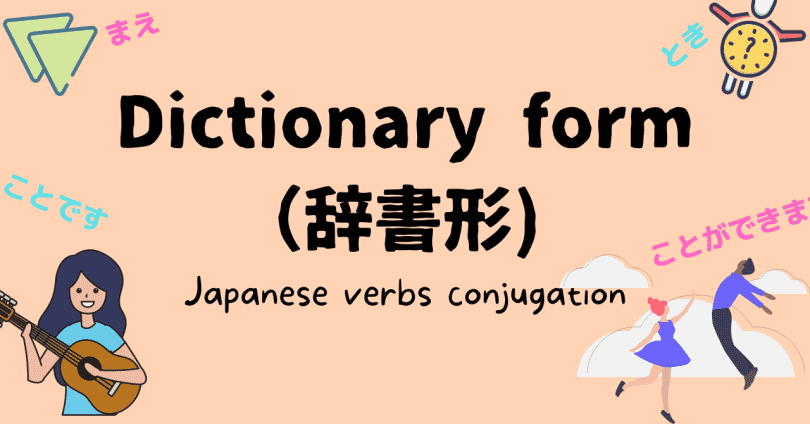Dictionary form in Japanese verb conjugation is the base of Japanese verbs. Native speakers learn from this form. So when you use a Japanese dictionary, you will look it up using this form.
We can divide Japanese verbs into 3 groups. If you are not yet confident in your grouping, check out this article first to see how to group them.

Table of contents
Convert to Dictionary form
Anyway Japanese verb conjugations are first grouped, then the rules for each group are applied.
Step1. Divide verbs into groups
We can divide Japanese verbs into 3 groups. If you are not yet confident in your grouping, check out this article first to see how to group them.
| U verbs / GroupⅠ | Ru verbs / Group Ⅱ | Irregular verb / Group Ⅲ |
|---|---|---|
| のむ : drink | たべる : eat | する : do |
| あう : meet | おきる : get up | くる : come |
| きく : listen | ねる : sleep | |
| およぐ : swim | みる : watch |
Step2. Transform into Dictionary form
Today I will explain how to convert from Masu form to Dictionary form. Let’s look at Group II (or Ru verbs), III (Irregular verbs), and finally Group I (or U-verbs).
GroupⅡ/ Ru-verbs
たべ
ます remove, add る.ます→ たべ る
Group II is always easy! Say goodbye to ”Masu”and add ”Ru”.
Group Ⅲ / Irregular verbs
し ます → する
Sorry,memorize.
き ます → くる
Sorry,memorize.
Note that the kanji characters are the same as “来(き)ます” and “来(く)る”, but the readings are different.
Group Ⅰ / U-verbs
The problem is Group I. But it’s ok. Everyone, please think of the hiragana chart.
For example,
あい
”ます”remove. And “い” that comes before “ます” changes to “う”.ます→ あう
かき
”ます”remove. And ”き” that comes before “ます” changes to “く”.ます→ かく

In Group I, there is always an “i-line” before “ます”. When making a dictionary form, it changes to “u-line”.
How to practice Dictionary form?
Step1. Proper understanding of rules
Surely, it seems obvious, doesn’t it? However, when different conjugations such as Negative form and Te form are introduced in the future, different rules will be used and many new verbs will be introduced. Therefore, it is important to firmly input “This is the rule for Dictionary form”.
Step2. Repeat until reflexive
In the beginning, You will think…”Which group is this verb?” ,and then if it is Group I, You will remind that “What is the letter before Masu…..?”.It is the right process. However, when it comes to real conversation, there is no time to think about it. You need to respond reflexively, i.e., within 1-2 seconds.
Definitely,if you want to be able to speak, this time lag can be a problem.So, for this kind of conjugate memorization, use flashcards.The recommended app is Anki. If you haven’t used it yet, please also read this article.
Dictionary form expressions for beginners
Especially, Te form is used in a variety of expressions learned in beginner’s grammar. Today we will introduce four important ones.
1. ~ことです (verb → noun)
: You can change the verb to the noun.
わたしの しゅみ は ピアノ を ひく こと です。
My hobby is playing the piano.
*ひきます → ひく (Group Ⅰ,U-verbs)
2. ~ことができます ( I can ~ )
: Talk about possibilities and capability.
わたしは フランス語(ご) を はなす こと ができます
I can speak French.
*はなします → はなす ( Group I , U-verbs)
3. ~とき ( when )
: Talk about when to take action.
ごはんを たべる とき、はし を つかいます。
When I eat rice, I use chopsticks.
*たべます → たべる ( Group Ⅱ , Ru-verbs)
4. ~まえ ( Before )
: Talk about when to take action.
ともだち が くる まえ に そうじ します。
I’ll clean up before my friend comes over.
*きます → くる ( Group Ⅲ, Irregular verbs)
More about Japanese verbs
Additionlaly,if you want to master Japanese verbs, this is the book for you. Verbs are very important in any language. Let’s master them and learn to speak them!








